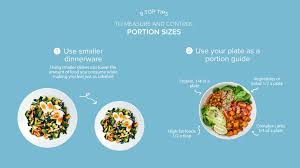Maintaining a balanced diet is essential for overall health and well-being. As we enter 2024, understanding and implementing effective nutrition tips can help you achieve your health goals and boost your energy levels. Whether you’re looking to lose weight, build muscle, or simply improve your overall nutrition, these top 10 nutrition tips for 2024 will guide you towards a healthier lifestyle.
<!– Replace with an actual image URL –>
1. Emphasize Whole Foods

Overview
Whole foods, including fruits, vegetables, whole grains, lean proteins, and healthy fats, should form the foundation of your diet. They are rich in essential nutrients and free from excessive additives and preservatives.
Tips for Incorporating Whole Foods
- Shop the Perimeter: Focus on the outer edges of the grocery store where fresh produce, meats, and dairy products are usually located.
- Plan Your Meals: Prepare meals using whole ingredients to avoid processed foods and take advantage of their nutritional benefits.
- Experiment with Recipes: Try new recipes that incorporate a variety of whole foods to keep your meals interesting and nutritious.
<!– Replace with an actual image URL –>
2. Prioritize Hydration
Overview
Staying hydrated is crucial for maintaining optimal health and supporting bodily functions. Water is essential for digestion, nutrient absorption, and overall energy levels.
Hydration Tips
- Drink Water Regularly: Aim for at least 8 glasses of water a day. Adjust based on activity level and climate.
- Monitor Your Intake: Use apps or trackers to ensure you’re meeting your hydration goals.
- Include Hydrating Foods: Eat water-rich foods like cucumbers, oranges, and melons to boost your hydration.
<!– Replace with an actual image URL –>
3. Balance Your Macronutrients
Overview
A balanced diet includes appropriate proportions of macronutrients: carbohydrates, proteins, and fats. Each plays a crucial role in your overall health.
Macronutrient Tips
- Carbohydrates: Choose complex carbs like whole grains and legumes for sustained energy.
- Proteins: Incorporate lean proteins such as chicken, fish, tofu, and legumes for muscle repair and growth.
- Fats: Include healthy fats like avocados, nuts, and olive oil to support brain health and hormone production.
<!– Replace with an actual image URL –>
4. Incorporate Fiber-Rich Foods
Overview
Fiber aids in digestion, helps maintain blood sugar levels, and promotes satiety. Including fiber-rich foods in your diet can improve overall health.
Fiber Tips
- Eat More Vegetables: Add a variety of vegetables to your meals for a fiber boost.
- Include Whole Grains: Opt for whole grains like quinoa, brown rice, and oats.
- Snack on Fruits and Nuts: Choose high-fiber snacks such as apples, berries, and almonds.
<!– Replace with an actual image URL –>
5. Monitor Portion Sizes

Overview
Portion control is crucial for maintaining a balanced diet and managing calorie intake. It helps prevent overeating and ensures you get the right amount of nutrients.
Portion Control Tips
- Use Smaller Plates: Opt for smaller plates to help control portion sizes and reduce calorie consumption.
- Listen to Your Body: Pay attention to hunger and fullness cues to avoid overeating.
- Measure Your Food: Use measuring cups or a food scale to ensure accurate portion sizes.
<!– Replace with an actual image URL –>
6. Include a Variety of Colors
Overview
Eating a colorful array of fruits and vegetables ensures you get a wide range of nutrients and antioxidants. Each color represents different vitamins, minerals, and phytonutrients.
Colorful Eating Tips
- Create Rainbow Meals: Include a variety of colorful vegetables and fruits in your meals.
- Try New Produce: Experiment with different fruits and vegetables to add color and nutrients to your diet.
- Incorporate Herbs and Spices: Use colorful herbs and spices to enhance the flavor and nutritional value of your dishes.
<!– Replace with an actual image URL –>
7. Limit Added Sugars and Sodium
Overview
Excessive intake of added sugars and sodium can lead to health issues such as high blood pressure, weight gain, and increased risk of chronic diseases.
Tips for Reducing Sugars and Sodium
- Read Nutrition Labels: Check labels for added sugars and sodium content to make informed choices.
- Choose Fresh Ingredients: Opt for fresh, unprocessed foods to reduce sugar and sodium intake.
- Cook at Home: Prepare meals at home to control the amount of sugar and salt in your diet.
<!– Replace with an actual image URL –>
8. Practice Mindful Eating
Overview
Mindful eating involves paying full attention to the eating experience, including the taste, texture, and enjoyment of food. It can help improve digestion and prevent overeating.
Mindful Eating Tips
- Eat Slowly: Take time to savor each bite and enjoy your meal without distractions.
- Focus on Hunger Cues: Eat when you’re truly hungry and stop when you’re satisfied, not full.
- Engage Your Senses: Notice the colors, smells, and textures of your food to enhance your eating experience.
<!– Replace with an actual image URL –>
9. Plan and Prepare Your Meals
Overview
Meal planning and preparation can help you stay on track with your nutrition goals and make healthier eating choices.
Meal Planning Tips
- Create a Weekly Menu: Plan your meals for the week ahead to ensure you include a variety of nutritious foods.
- Prepare in Advance: Cook and store meals or ingredients in advance to make healthy eating more convenient.
- Use a Grocery List: Make a list of the ingredients you need to avoid impulse purchases and stick to your nutrition goals.
<!– Replace with an actual image URL –>
10. Stay Informed and Adapt

Overview
Nutrition science is constantly evolving. Staying informed about the latest research and adapting your diet accordingly can help you maintain a balanced and healthy lifestyle.
Tips for Staying Informed
- Follow Reputable Sources: Read articles from credible health and nutrition sources to stay updated on new findings.
- Consult a Nutritionist: Consider working with a registered dietitian or nutritionist for personalized advice and guidance.
- Be Open to Change: Be willing to adapt your eating habits based on new information and your evolving health needs.
<!– Replace with an actual image URL –>
Conclusion
Incorporating these top 10 nutrition tips into your daily routine can significantly enhance your overall health and well-being in 2024. By focusing on whole foods, staying hydrated, balancing macronutrients, and adopting mindful eating practices, you can achieve a balanced diet and boost your energy levels. Embrace these tips to create a healthier lifestyle and enjoy the benefits of a well-nourished body.

